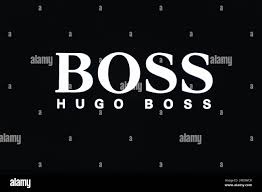
Hugo Boss is expected to provide updates on its sales and profit targets during its second-quarter results announcement on Thursday. Investors are particularly focused on whether the company will push back its key financial goals beyond 2025, following a challenging period of weakened global consumer demand, especially in China and Britain.
In July, Hugo Boss shares fell by as much as 10% after the company revised its full-year sales and earnings forecasts downward. The luxury fashion brand had previously warned in March that it might delay its target of achieving 5 billion euros ($5.4 billion) in annual revenues by 2025. However, it maintained that it expected its EBIT margin to reach at least 12% by next year.
Analysts, including Felix Jonathan Dennl from Metzler Capital Markets, suggest that Hugo Boss might need two to three more years to meet its mid-term sales targets and could reach its EBIT margin goal only after 2028. "Besides comments on current trading, which will be closely watched by investors, we would not rule out an update on Hugo Boss' mid-term targets," Dennl noted.
Alexander Zienkowicz, a senior analyst at Mwb Research, echoed this sentiment, stating, "If Hugo Boss can't provide more visibility, the revenue and EBIT targets should be in doubt." According to an average of estimates prior to the company's preliminary results in mid-July, analysts projected sales of 4.65 billion euros and an operating profit of 519 million euros for 2025, corresponding to an EBIT margin of 11%.
Cost-cutting measures will also be under scrutiny, with Warburg Research analyst Joerg Philipp Frey pointing out the company's 21% increase in marketing spending and higher retail expenses in the second quarter, despite a decline in quarterly sales. Hugo Boss has been expanding aggressively, adding 102 new points of sale, including stores, "shop-in-shops," and outlets in 2023, as part of an effort to counter slowing sales growth. This expansion has occurred amidst a broader downturn in the luxury sector, as inflation and economic uncertainty cause consumers to be more cautious with their spending on designer fashion.
Earnings reports from luxury giants such as LVMH and Kering this quarter have highlighted the industry's struggles, with both companies falling short of forecasts. "To lift the share price, it will be important for Hugo Boss to demonstrate effective management of the issues at hand and a credible path to recovery," Zienkowicz emphasized. The market will be watching closely to see how Hugo Boss navigates these challenges and whether it can maintain investor confidence amidst the current economic landscape.
(Source:www.reuters.com)
In July, Hugo Boss shares fell by as much as 10% after the company revised its full-year sales and earnings forecasts downward. The luxury fashion brand had previously warned in March that it might delay its target of achieving 5 billion euros ($5.4 billion) in annual revenues by 2025. However, it maintained that it expected its EBIT margin to reach at least 12% by next year.
Analysts, including Felix Jonathan Dennl from Metzler Capital Markets, suggest that Hugo Boss might need two to three more years to meet its mid-term sales targets and could reach its EBIT margin goal only after 2028. "Besides comments on current trading, which will be closely watched by investors, we would not rule out an update on Hugo Boss' mid-term targets," Dennl noted.
Alexander Zienkowicz, a senior analyst at Mwb Research, echoed this sentiment, stating, "If Hugo Boss can't provide more visibility, the revenue and EBIT targets should be in doubt." According to an average of estimates prior to the company's preliminary results in mid-July, analysts projected sales of 4.65 billion euros and an operating profit of 519 million euros for 2025, corresponding to an EBIT margin of 11%.
Cost-cutting measures will also be under scrutiny, with Warburg Research analyst Joerg Philipp Frey pointing out the company's 21% increase in marketing spending and higher retail expenses in the second quarter, despite a decline in quarterly sales. Hugo Boss has been expanding aggressively, adding 102 new points of sale, including stores, "shop-in-shops," and outlets in 2023, as part of an effort to counter slowing sales growth. This expansion has occurred amidst a broader downturn in the luxury sector, as inflation and economic uncertainty cause consumers to be more cautious with their spending on designer fashion.
Earnings reports from luxury giants such as LVMH and Kering this quarter have highlighted the industry's struggles, with both companies falling short of forecasts. "To lift the share price, it will be important for Hugo Boss to demonstrate effective management of the issues at hand and a credible path to recovery," Zienkowicz emphasized. The market will be watching closely to see how Hugo Boss navigates these challenges and whether it can maintain investor confidence amidst the current economic landscape.
(Source:www.reuters.com)





